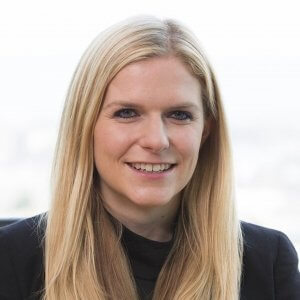As world leaders gather for COP27, no less than seven recent reports all offering varying, yet shocking updates on the state of the planet mark this year’s climate conference as one of the most important yet.
Climate campaigner Greta Thunberg – not attending – recently published a pivotal book, entitled The Climate Book, drawing together more than 100 experts to challenge everything we think we know about climate change and offer hopeful solutions for the future.
And our new PM Rishi Sunak – not attending, now attending – said this week, ‘There is no long-term prosperity without action on climate change. There is no energy security without investing in renewables…building a secure and sustainable future.’
But closer to home…
Given the cost of living is around 10 per cent more than it was a year ago, most of us will be wondering how on earth we can meet next month’s energy and mortgage payments, never mind saving for the (low carbon) future.
How to take climate action with your money
The thing is, there’s a really, really, really simple way to take climate positive action with your money – even if you don’t have much.
You don’t need thousands to invest in the stock market, and you don’t need hundreds going into a pension, you simply need to look at your current account or debit card provider.
A typical monthly salary removed from one of the Big Five and instead banked with a more environmentally-friendly bank or debit card provider ultimately means reducing the flow of finance to environmentally destructive industries such as fossil fuels and deforestation.
The positive choice of a banking or card provider with a better environmental record means increasing pressure on those banks that support the more environmentally destructive industries to reduce their investments in the sector.
Why we should all ask, ‘What happens to my money?’
Developing a greater awareness of how our bank uses the money we deposit with it is one of the most impactful decisions we can make for the future of the planet. Simply asking the question: ‘What happens to my money?’ is a great first step.
Such questions demonstrate the growing swell of customer interest in the power of money for environmental good and, in time, will collectively push the larger banks to reconsider their financing of the more environmentally destructive sectors.
While people may not realise the link between their bank and climate change, 71 per cent of people think banks and financial providers need to be more transparent about how they invest their customers’ money. And 64 per cent say the government needs to do more to make banks be transparent, according to a 2021 survey from Triodos Bank.
In fact, it is already possible to see this planet-first people power in action if we look at the recent announcement from the UK’s biggest bank, Lloyds, that it will no longer finance fossil fuel expansion.
If Lloyds, one of the Big Five, with 18 million UK customers, can take this important first step, then hopefully the other large banks will follow suit.
Such a shift is also important as it presents a problem for the larger banks well-used to greenwashing their way out of carbon-increasing finance. It’s a virtuous circle of growing scrutiny to growing interest to growing scrutiny.
Global banking giant HSBC was recently hauled over the coals by the UK’s Advertising Standards Authority. It banned adverts by the bankstating that it is “aiming to provide up to $1 trillion (£0.9 trillion) in financing and investment globally to help our clients transition to net zero” for being ‘misleading’ and ‘omitting significant information’.
The gap between words and actions
The missing information, as highlighted in another report, is that HSBC continues to sink plenty of money into fossil fuels and other polluting activities, even within its ‘sustainable finance’ investments.
Tony Burdon of Make My Money Matter said: “This latest report brings into stark focus the gap between the words and actions of banks like HSBC when it comes to fighting climate change.
“Because you can’t claim to be a climate leader while continuing to provide billions of pounds to those companies expanding fossil fuel production, and undermining any chance of limiting global warming to below 1.5C. And you shouldn’t be able to reap the benefits of so called ‘sustainable investments’ while delivering none of the impact needed.”
Make My Money Matter is calling on HSBC – and all leading UK banks – to back their words with actions, including by stopping financing fossil fuel expansion, and ramping up investments in real climate solutions.
How to switch to a planet-friendly provider
If this blog has got you thinking about the question, ‘What are you doing with my money?’, then switching to a more planet-friendly provider is both impactful and easy. A growing number of resources can help point you in the right direction.
Sites such as this one, as well as Bank.Green, Switchd and MotherTree all exist to help you move your money.
Finally, check out our Good Lists, Reviews and Directory listings for more information on climate-friendly banks and card providers such as Tred, Treecard and more. In addition, banking providers with our Good Egg accreditation – such as Triodos Bank and Ecology Building Society – have been through a rigorous ethical screening process including verification by our independent expert panel.
For your complete guide to the best ethical and sustainable investment funds available to UK investors, see the latest Good Investment Review, produced in partnership with Square Mile Research and The Big Exchange.





